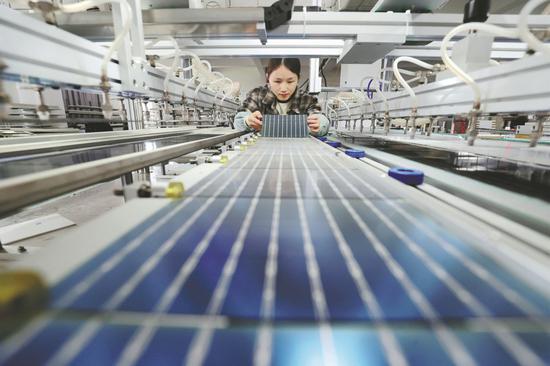
An employee works on a photovoltaics production line at a tech company in Huzhou, Zhejiang province. (XIE SHANGGUO/FOR CHINA DAILY)
China's information technology and high-tech manufacturing sectors continued to inject growth momentum into the country's industrial economy in the first quarter, as the country maintained its global lead in 5G adoption, said the country's top industry regulator on Thursday.
Zhao Zhiguo, chief engineer of the Ministry of Industry and Information Technology, disclosed that as of the first quarter, China had nearly 3.65 million 5G base stations and the penetration rate of 5G users exceeded 60 percent.
In comparison, a study by market consultancy 5G Americas showed that the 5G penetration rate in North America reached 40 percent in the first half of last year. Data from South Korea's Ministry of Science and ICT showed 38 percent of the total mobile subscribers in that country were made up of 5G users by the middle of last year.
"China's demand for high-end or smart 5G mobile phones remained high in the first quarter, as shipments of such smartphones accounted for 83.7 percent of the total during the period. The world's first 400G all-optical interprovincial backbone network was also officially commercialized in the country recently, whose speed was also the highest globally," Zhao said.
"The country will now make more efforts to construct new information infrastructure and promote the research, development and application of cutting-edge technologies like 6G, next-generation internet and quantum communications."
However, Wu Hequan, an academician at the Chinese Academy of Engineering, said that though the spectrum efficiency and energy efficiency of 5G are superior to that of 4G, operators' costs have increased and the average revenue per user has not increased at the same time. "The dividends shared by 5G operators are not as expected."
So, when developing 6G, more attention should be paid to fulfill the expectations of users and telecom operators to ensure 6G applications are more diversified and personalized, Wu said.
The remarks were made after the latest MIIT data showed that China's industrial output, a key economic indicator, rose 6.1 percent year-on-year in the first quarter. Among 41 major industrial categories, 37 sectors maintained year-on-year growth.
According to the ministry, the output of the equipment manufacturing sector grew by 7.6 percent year-on-year while industrial investment increased 13.4 percent in the first quarter.
Notably, the first-quarter output of the high-tech manufacturing sector rose by 7.5 percent year-on-year. The first-quarter output of the solar cell sector increased 20.1 percent year-on-year, and that of polysilicon and monocrystalline silicon sectors, which contribute two important materials related to photovoltaics, saw 50 percent year-on-year growth.
Zhang Liqun, a researcher at the macroeconomic research department of the Development Research Center of the State Council, said: "The growth of the high-tech manufacturing and other emerging industries has accelerated in the first quarter. This shows innovation-focused sectors have increasingly led the country's pursuit of high-quality development."








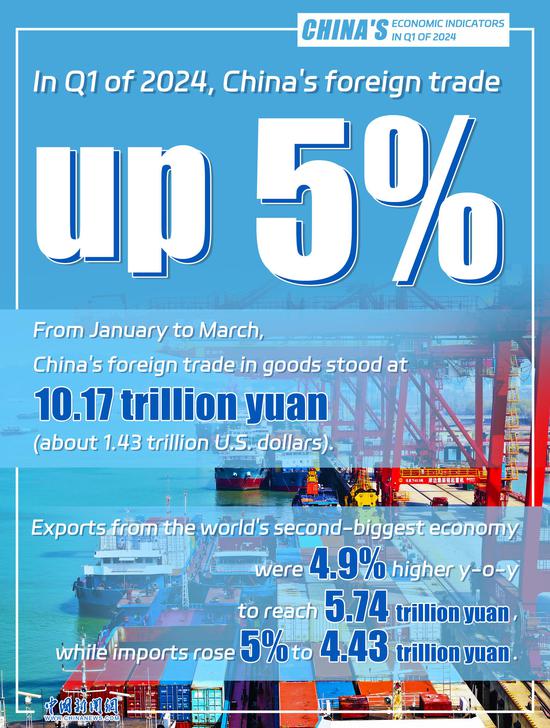




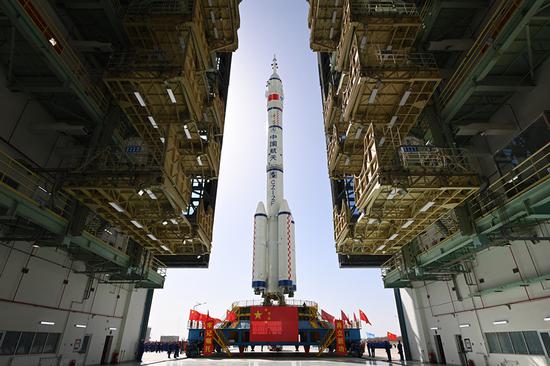



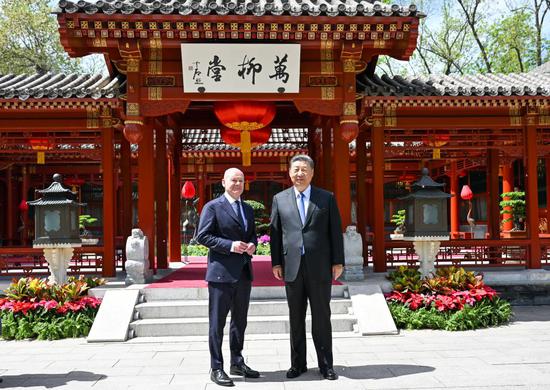
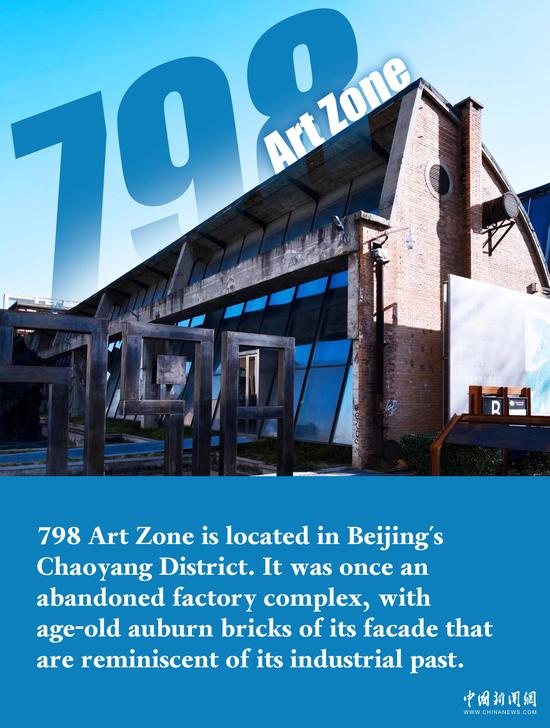



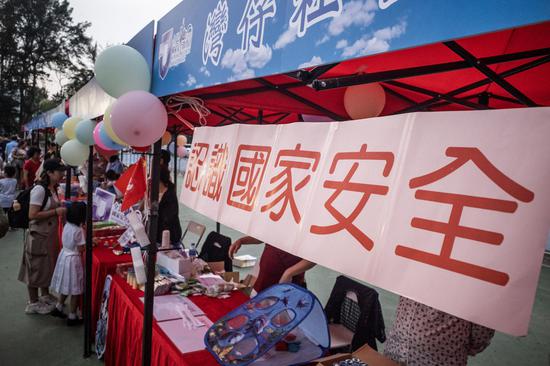
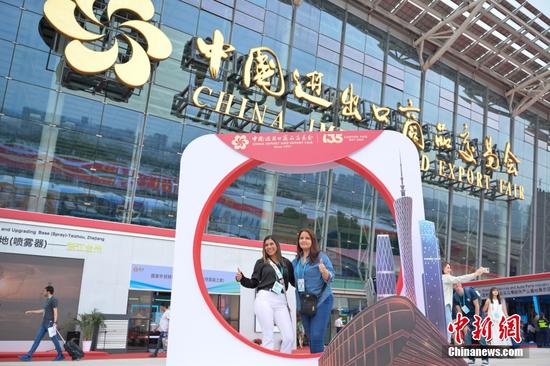



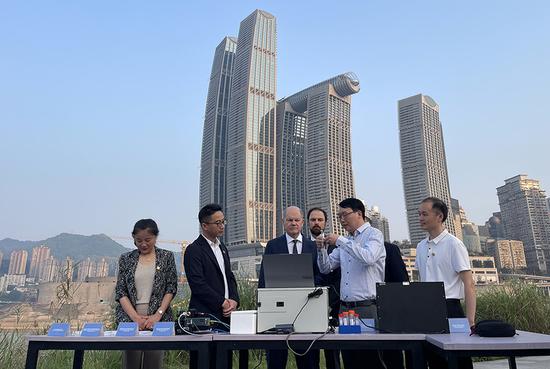
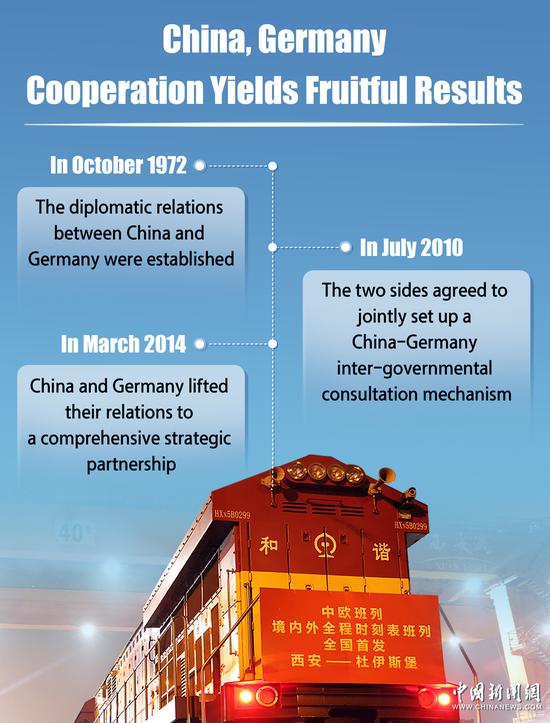
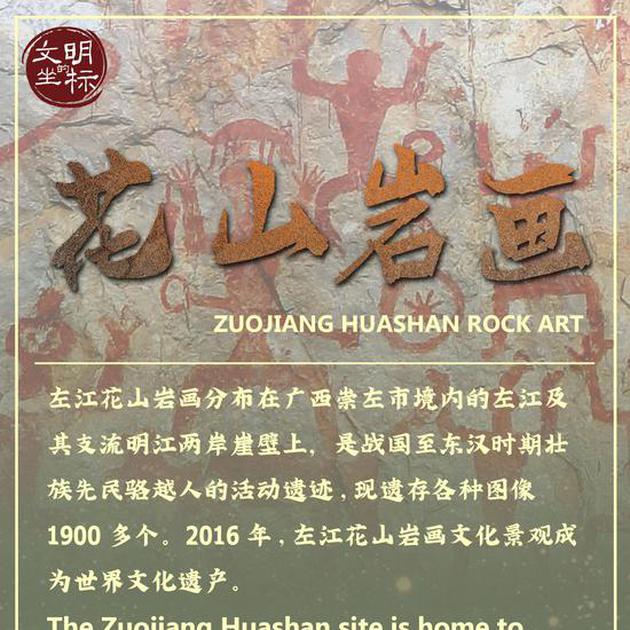
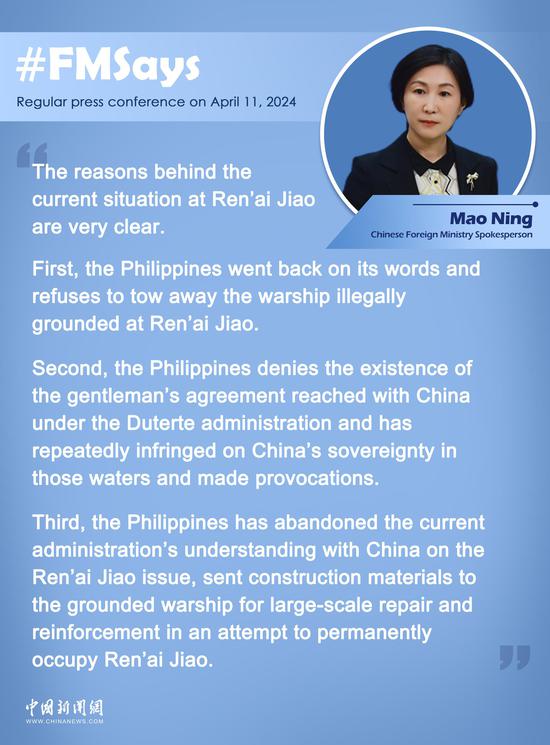
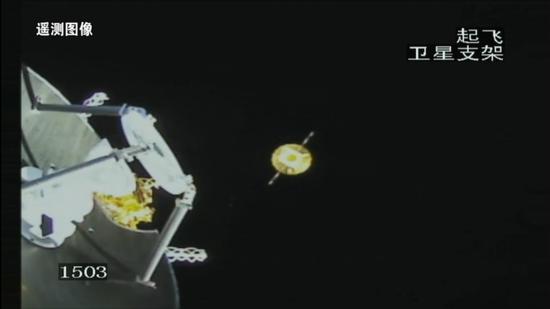
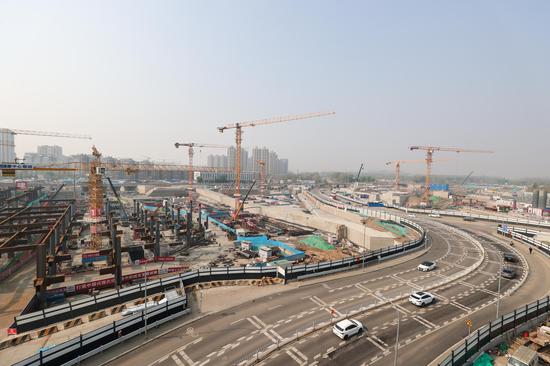

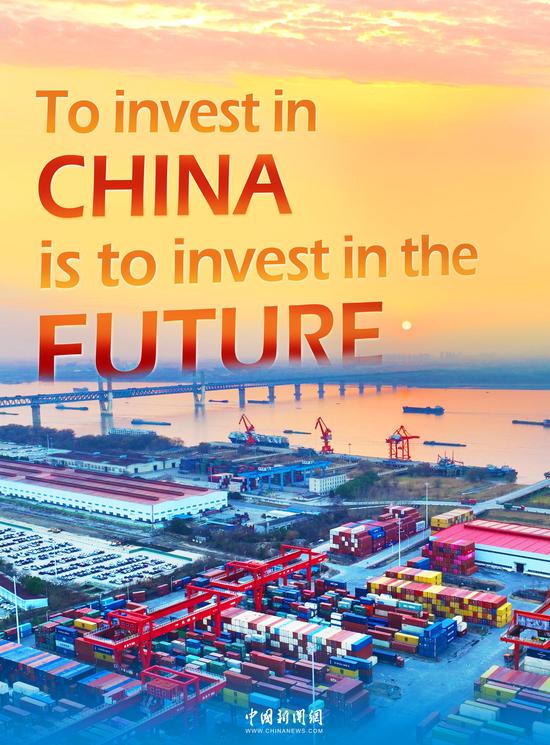
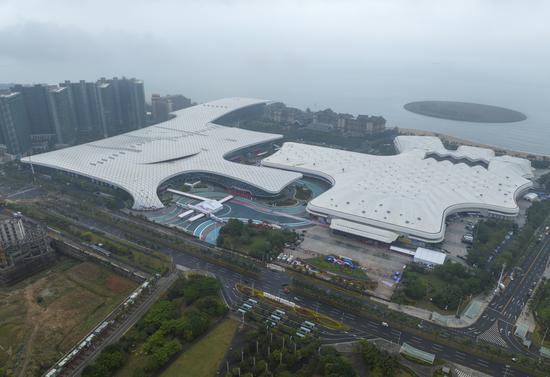


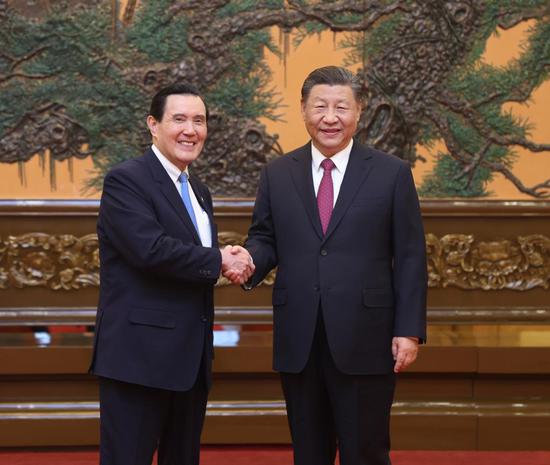

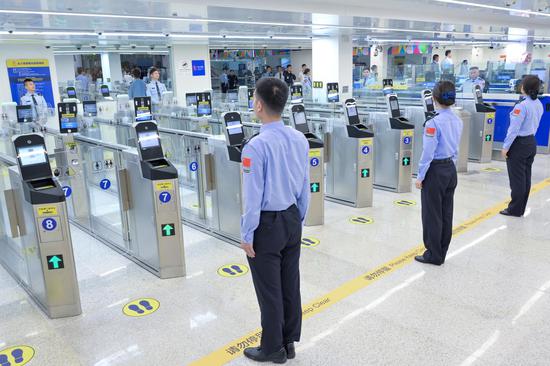









 京公网安备 11010202009201号
京公网安备 11010202009201号